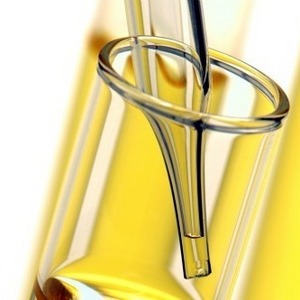New catalysts to convert ethanol to butanol fuels

April 17, 2013
BY Chris Hanson
Researchers from U.K.’s University of Bristol reported the development of new catalysts that are able to convert ethanol to butanol at the national meeting and exposition of the American Chemical Society.
Duncan Wass, professor at the University of Bristol, said some ethanol plants in the Corn Belt have begun the conversion to the production of butanol. However, a $10 million to $15 million price tag in current conversion costs can pose a challenge for other producers. Wass adds that while the butanol market is also less established than ethanol, it is quickly being developed by companies, such as Butamax and Gevo.
Advertisement
Advertisement
Wass and his group said the new catalysts are similar to those used in modern petrochemical technology, potentially allowing existing ethanol producers to avoid high retrofitting costs while allowing for the production of both ethanol and butanol. Unlike current technology, Wass said the new catalysts are more selective and yield 95 percent butanol out of the total products from each batch in laboratory-scale tests.
“These new catalysts are much better than any previously in existence.” Wass said, “There’s a long way to go before they are commercialized, but we are reporting a fundamental advance in that direction.”
Advertisement
Advertisement
Currently, the technology is still being tested in the lab with scale-up plans to follow.
Related Stories
Chevron Lummus Global announced a successful commercial test for coprocessing biogenic feedstocks and fossil feedstocks at INA Group's Rijeka Refinery in Croatia. SAF and renewable diesel were produced during the test.
Phillips 66 on July 25 released Q2 financial results, reporting the company’s Rodeo Renewable Energy Complex in California continues to run at reduced rates due to market conditions. Pre-tax income for the renewables segment was up when compared to Q1.
CountryMark on July 22 celebrated the completion of more than $100 million in upgrades at its refinery in Indiana, including those related to soybean oil storage. The facility produces renewable diesel via coprocessing technology.
Neste Corp. on July 24 released second quarter results, reporting record quarterly renewable product sales volumes despite weaker margins. SAF sales were up nearly 80% when compared to the first quarter of 2025.
Valero Energy Corp. on July 24 released second quarter results, reporting a profitable three-month period for its ethanol segment. The renewable diesel segment posted a loss, but the company’s new sustainable aviation fuel (SAF) unit operated well.
Upcoming Events










